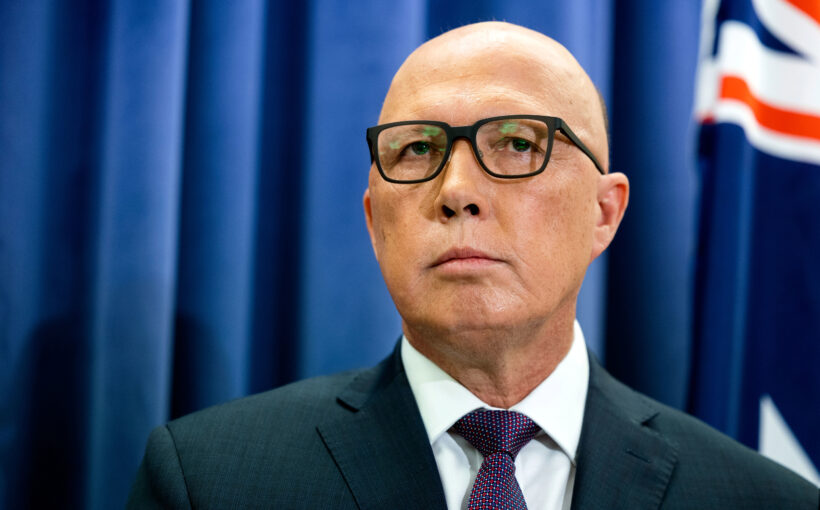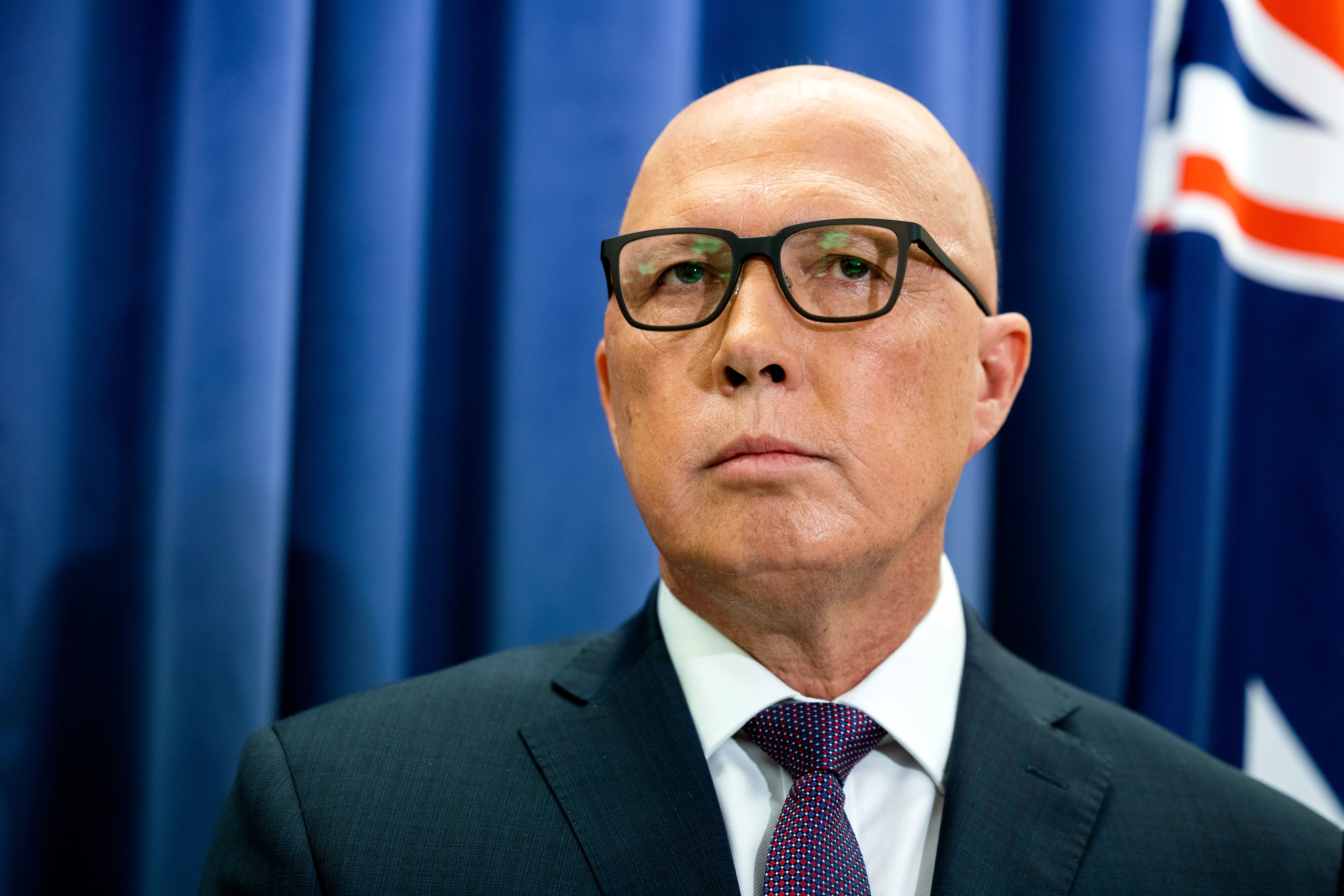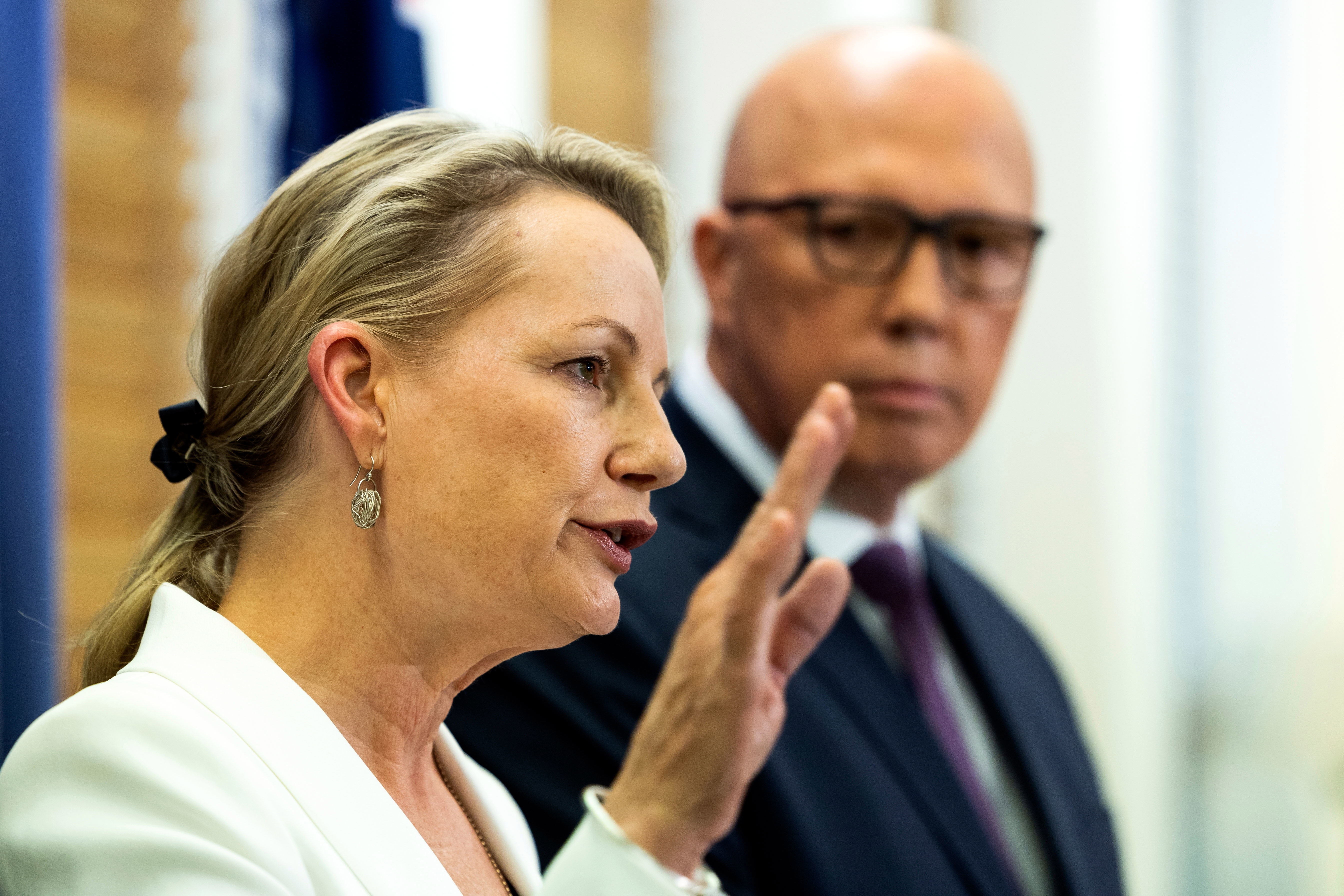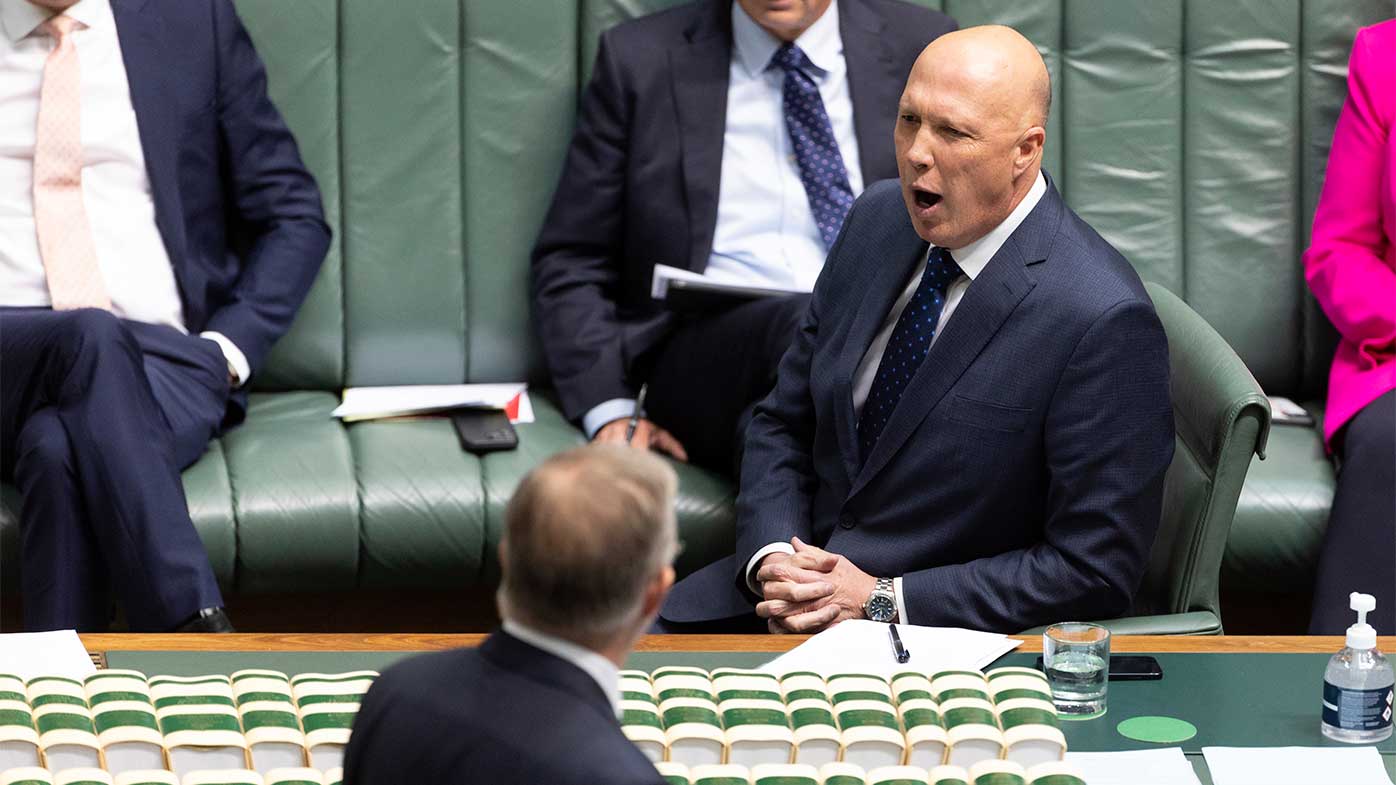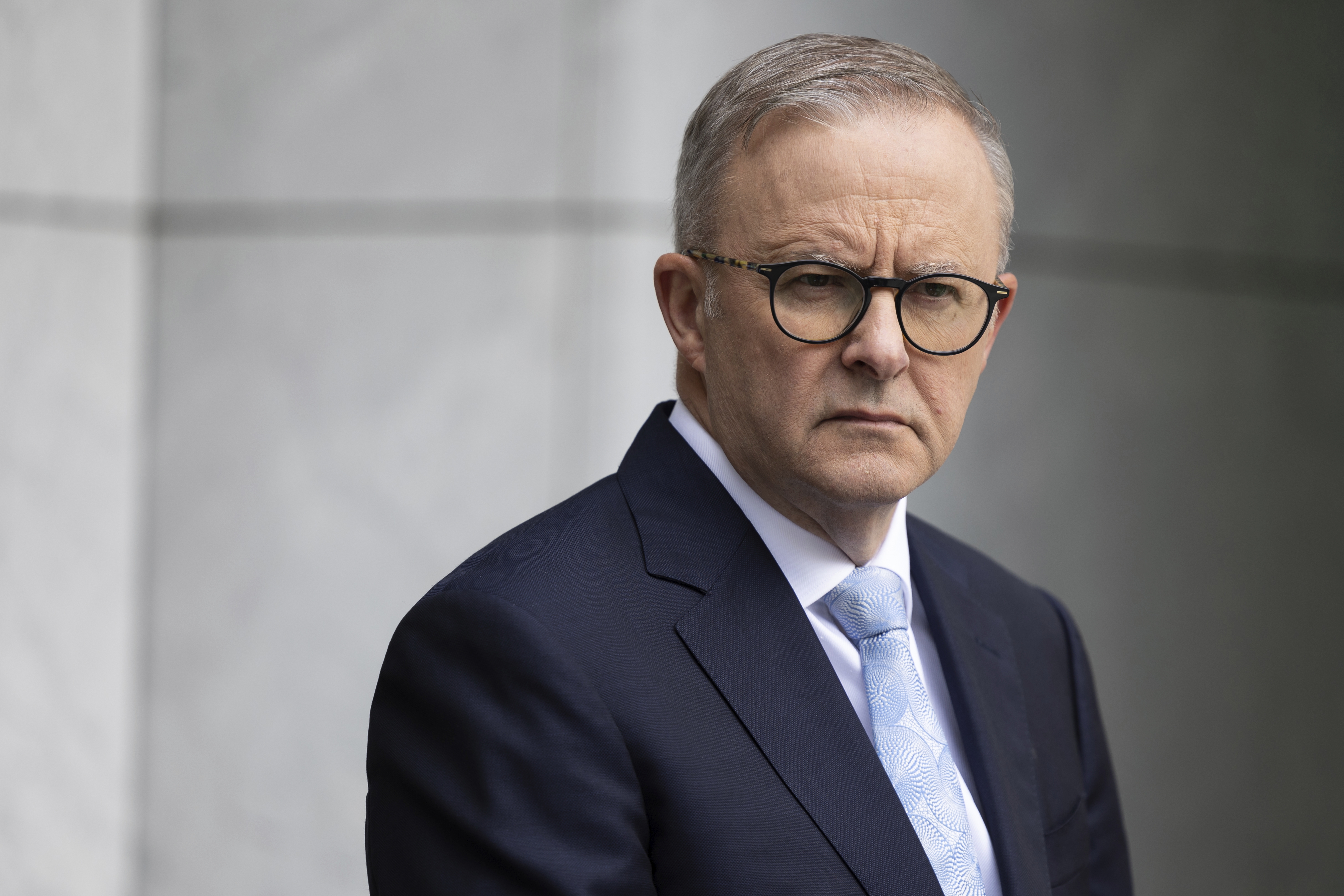The Liberal Party will oppose the federal government's proposed model for a national Indigenous Voice to parliament in this year's referendum.
Opposition Leader Peter Dutton formally announced the position following a two-hour party room meeting in Canberra, saying his party's stance will improve outcomes for Indigenous communities.
"The Liberal Party resolved today to say yes to constitutional recognition for Indigenous Australians, yes to a local and regional body so we can get practical outcomes for Indigenous people on the ground," he said.
"But there was a resounding no to the prime minister's Canberra Voice."
READ MORE: What is the Indigenous Voice to parliament and what would a referendum entail?
While Dutton confirmed his party will support constitutional recognition at the same time as opposing the Voice, he said the Liberals will not ask the government to split the two proposals into separate questions in the referendum, meaning Australians will only be given the option of voting on the Voice question.
Dutton also confirmed he will actively campaign for the no vote, saying he doesn't think the Voice "is in our country's best interests".
Rather than supporting the government's proposed model of a constitutionally enshrined Voice, the Liberals will instead argue for a legislated approach for local and regional bodies.
Deputy Liberal leader Susan Ley and Dutton both claimed the government was being divisive with its approach to the referendum.
READ MORE: RBA boss warns more rate hikes on the way despite housing, rental supply crisis
"The onus is on the government to demonstrate how Anthony Albanese's Voice proposal can improve the lives of Indigenous Australians, without dividing Australians," Ley said.
The Voice was not first proposed by Prime Minister Albanese – it was called for six years ago in the Uluru Statement from the Heart, a petition from Indigenous leaders that argued for the body's establishment to give First Nations peoples better representation.
The statement explicitly calls for the body to be "enshrined in the Constitution", rather than legislated.
In line with its policy, the Liberal position is not binding on backbenchers, who will be able to take their own stance.
However, it differs from the party's approach to both the 1999 referendum and 2016 plebiscite on same-sex marriage, when frontbenchers were also allowed to take their own position.
READ MORE: When and where do Easter double demerits apply?
Dutton said the Liberals will support the legislation for the referendum before the parliament, but criticised Albanese for changing the wording of the question to be asked of Australians, claiming the prime minister had gone against the advice of the attorney-general and solicitor-general.
Albanese had previously called on Dutton and the opposition to support the yes vote for the referendum, which is likely to be held between October and December.
The Nationals, the Liberals' junior Coalition partner, announced last year they will be opposing the Voice.
READ MORE: Trump claims 'all out nuclear war' could unfold under Biden
Only eight of Australia's 44 referendums have passed, and none have been successful without bipartisan support.
The last one was held in 1999, when the nation voted against becoming a republic.
Sign up here to receive our daily newsletters and breaking news alerts, sent straight to your inbox.
